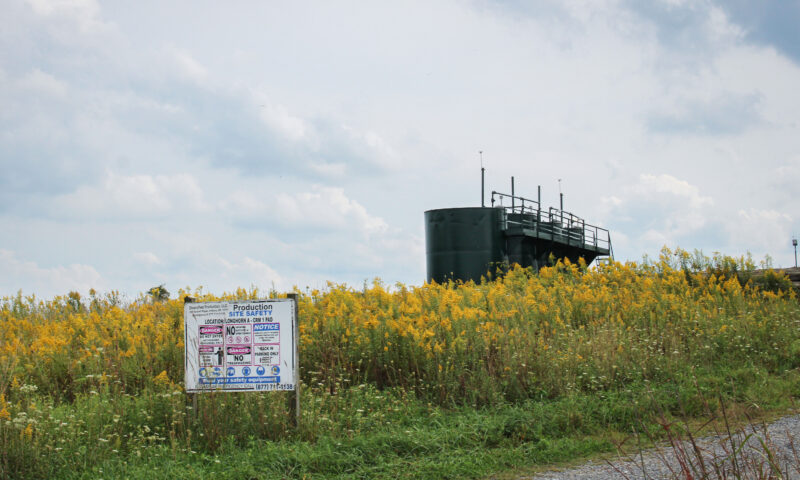Labor & Economy
Insurance Industry Happy to Receive, But Not to Give
Paulina Gonzalez and Lori Gay on how a powerful lobby is blocking the extension of California’s community investment program.

Twenty years ago, the insurance industry narrowly escaped a requirement to reinvest its premiums in California communities. An alternative, voluntary program was created instead, the California Organized Investment Network (COIN) program. COIN was created at the request of California’s powerful insurance industry, instead of state legislation that would have required insurers to reinvest in the state’s underserved communities, similar to the Community Reinvestment Act (CRA) for the banking industry. But now insurance lobbyists are seemingly working behind the scenes to kill a reporting mechanism in this voluntary program — which begs the question, Why?
By making safe and sound investments in the COIN program, insurance companies can help promote positive social and environmental initiatives, including renewable energy projects, community affordable housing, economic development and small business lending, while receiving a reasonable rate of return.
Throughout its 20-year history, community members have had to repeatedly advocate to keep requirements that compel insurers to report on their investments in COIN to the state insurance commissioner. This transparency ensures that the public has information on how much (if any) their insurance companies are re-investing of their premiums into California communities. After all, the foundation of any successful community investment program is that the public has the right to information in order to hold stakeholders accountable to the communities it is meant to serve.
Now, the insurance lobby seems to be holding California communities and the Department of Insurance hostage as COIN is set to sunset January 1, 2017. The Personal Insurance Federation of California (PIFC), an industry lobbying trade group, is apparently trying to weaken the COIN renewal bill, Assembly Bill 2728 (Atkins, D-San Diego) by lobbying against the annual data reporting requirement, which would effectively destroy the transparency that communities have relied on in the COIN program.
One might ask, Why don’t the insurers want information about their participation in the program shared?
It seems odd that insurers are willing to collect over $250 billion in premiums from California consumers each year, but then don’t want to report on the ways they’re reinvesting those premiums, especially if it’s in ways that benefit communities.
The Department of Insurance recently released a report on COIN investments and it may shed some light. Progressive Insurance, Mercury Insurance and Farmers Insurance — all of which are PIFC members — have abysmal track records when it comes to investing in low- and moderate-income communities via the COIN program.
In 2015, the industry average for all insurers was 4.71 percent of premiums invested in High Impact COIN holdings – which, like CRA investments, are geared towards low- and moderate-income communities. In comparison, Progressive invested zero of its premiums into COIN High Impact Holdings, Mercury invested .7 percent of premiums into High Impact Holdings and Farmers invested 1.27 percent of its premiums into COIN High Impact Holdings.
Several health insurers have recently proposed high profile mega mergers, which are under consideration and being contested by California’s Department of Insurance, its Department of Justice, Attorney General Kamala Harris and U.S. Senator Dianne Feinstein. They also have poor showings in High Impact Holdings under COIN. In 2015, Cigna Health and Life Insurance invested 1.18 percent of premiums into High Impact holdings and Anthem invested .66 percent of premiums in High Impact Holdings. Given the well-documented connections between health and safe and affordable housing, these meager investments are surprising and disappointing.
With such dismal showings, perhaps insurance industry companies prefer to spend money fighting to end reporting requirements rather than reinvesting money in their California communities. COIN was developed as an alternative to a CRA law for insurers in California, so it’s worth comparing the reinvestment records of insurers (without a reinvestment mandate) vs. banks who do have a mandate.
As previously noted, last year the insurance industry had an average of 4.71 percent of their premiums invested in High Impact COIN holdings. In comparison, Banc of California, City National, Mechanics Bank, Bank of Hope (the combination of BBCN and Wilshire banks), and others have agreed to reinvest 10-20 percent of their deposits in low to moderate income California communities. Also telling: For at least the last three years the COIN tax credit program has been oversubscribed, not by insurers, but by banks. In 2015, there were 46 bank investments compared to seven insurer investments and, in 2014, 38 bank investments compared to 11 insurer investments.
The data is clear: Insurers are happy with requirements for California consumers to buy car, home and health-care insurance, but they don’t want a requirement to reinvest any portion of those premiums back into underserved communities. What’s even more concerning, insurers also don’t want the public to know if they aren’t investing their premiums back into communities. The question is, will our legislature side with the millions of Californians who purchase billions in insurance every year, or with an insurance association that is working behind closed doors to try and eliminate transparency in the COIN program?
Paulina Gonzalez is the executive director of the California Reinvestment Coalition and a COIN advisory board member. Lori Gay is the president and chief executive officer of Neighborhood Housing Services of Los Angeles County.

-

 Latest NewsApril 28, 2025
Latest NewsApril 28, 2025A Majority of Californians Support Affordable Health Care for Undocumented Immigrants, Polls Show
-

 Latest NewsApril 11, 2025
Latest NewsApril 11, 2025California Showdown Over Medicaid as GOP Approves Massive Cuts
-

 Column - California UncoveredMay 5, 2025
Column - California UncoveredMay 5, 2025How Did Farmers Respond When the Trump Administration Suddenly Stopped Paying Them to Help Feed Needy Californians?
-

 The SlickApril 30, 2025
The SlickApril 30, 2025Fracking-Powered Crypto Mine in Pennsylvania Shuts Down Without Word to Regulators
-

 Column - State of InequalityApril 11, 2025
Column - State of InequalityApril 11, 2025California State University’s Financial Aid Students Learn Chaos 101
-

 The SlickApril 16, 2025
The SlickApril 16, 2025In Colorado, Gas for Cars Could Soon Come With a Warning Label
-

 The SlickApril 21, 2025
The SlickApril 21, 2025The Trump Administration Climate Plan: Red States Get Hydrogen, Blue States Don’t
-

 Latest NewsMay 5, 2025
Latest NewsMay 5, 2025Kaiser and Mental Health Care Workers Reach Tentative Agreement

